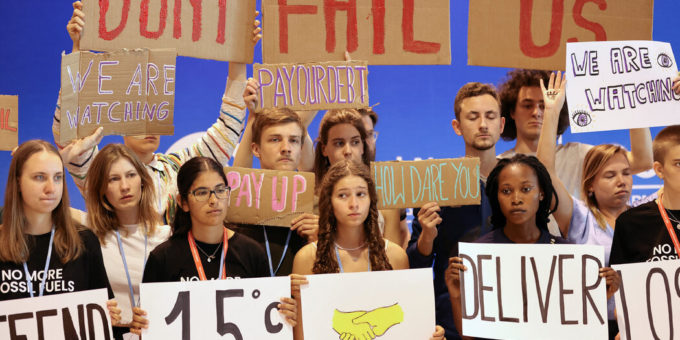
That left the United States, which has pumped more greenhouse gases into the atmosphere than any nation in history, as the last big holdout. By Saturday, as talks stretched into overtime, American officials said that they would accept a loss and damage fund, breaking the logjam.
Still, major hurdles remain.
The United States and the European Union are pushing for assurances that China will eventually contribute to any fund created — and that China would not be eligible to receive money from it. The United Nations currently classifies China as a developing country, which would make it eligible for climate compensation, even though it is now the world’s biggest emitter of greenhouse gases as well as the second-largest economy. China has fiercely resisted being treated as a developed nation in global climate talks.
There is also no guarantee that wealthy countries will deposit money into the fund. A decade ago, the United States, the European Union and other wealthy emitters pledged to mobilize $100 billion per year in climate finance by 2020 to help poorer countries shift to clean energy and adapt to future climate risks through measures like building sea walls. They are still falling short by tens of billions of dollars annually.
While American diplomats may agree to a fund, money must be appropriated by Congress. Last year, the Biden administration sought $2.5 billion in climate finance but secured just $1 billion, and that was when Democrats controlled both chambers. With Republicans, who largely oppose climate aid, set to take over the House in January, the prospects of Congress approving an entirely new pot of money for loss and damage appear dim.
“Sending U.S. taxpayer dollars to a U.N. sponsored green slush fund is completely misguided,” said Senator John Barrasso, Republican of Wyoming. “The Biden administration should focus on lowering spending at home, not shipping money to the U.N. for new climate deals. Innovation, not reparations, is key to fighting climate change.”
For their part, a variety of European nations have voluntarily pledged more than $300 million to address loss and damage so far, with most of that money going toward a new insurance program to help countries recover from disasters like flooding. Poorer countries have praised those early efforts while noting that they may ultimately face hundreds of billions of dollars per year in unavoidable, irreversible climate damages.










![ONE OK ROCK: Stand Out Fit In [OFFICIAL VIDEO] 1554825196 maxresdefault](https://desi123.com/wp-content/uploads/2019/04/1554825196_maxresdefault-100x100.jpg)

